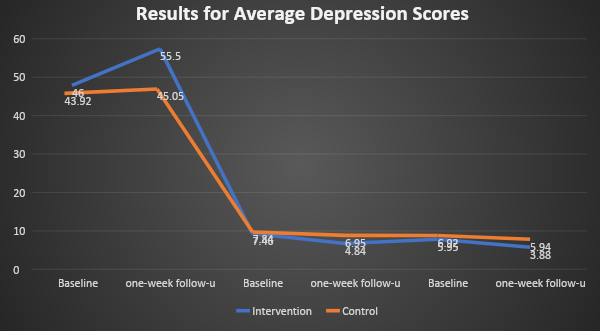The term “randomized” refers to the process through which participants in a randomized controlled experiment are arbitrarily placed into one of two groups: the intervention group or the control group. The participants in this study were randomly assigned to either the intervention group, where they abstained from using social media for a period of one week, or the control group, where they retained their typical levels of participation in social media activities (Valkenburg, 2022). When referring to a randomized controlled trial, the term “controlled” indicates the presence of a control group that serves as a basis for comparisons and the determination of causality. The main difference between the two groups in this study—the control group and the intervention group—was that the former stopped using social media for a week, while the latter carried on with their regular social media usage.
The Patient Health Questionnaire-8 was utilized in order to gauge depressive symptoms (PHQ-8). In the past two weeks, how often have you been plagued by feeling down, depressed, or hopeless? This is an example question from the PHQ-8. Participants were asked to rate their level of agreement with each statement, with a score of 0 indicating “not at all,” 1 indicating “many days,” 2 indicating “more than half the days,” and 3 indicating “almost every day.” A participant’s score could range from 0 to 24, with 0 being the lowest possible and 24 being the highest possible. According to the article, the participants exhibited a moderate level of depression on average.

The study found that taking a one-week break from social media led to a decrease in depression scores for the intervention group compared to the control group. However, there is an alternative explanation for this study’s findings. The participants in the intervention group who took a break from social media may have been more motivated to improve their mental health, which could have affected their depression scores. This was investigated as part of the study that found the group that took a break from social media had lower depression scores after one week. The research may have utilized a placebo intervention group in which participants took a vacation from something other than social media in order to rule out this other explanation as a possible cause of the findings (Lambert et al., 2022). The research would have been able to identify whether the improvement in depression scores was related to the break from social media or to motivation to improve mental health if it compared the depression scores of the placebo group with those of the intervention group and the control group.
The study, which aimed to investigate the impact of social media on mental health, revealed a promising outcome. After participants in the intervention group took a break from social media for one week, they showed a significant improvement in their depression scores. This is in comparison to the control group, who continued their usual social media habits (Lambert et al., 2022). This finding highlights the importance of taking breaks from social media for the improvement of mental well-being. It is widely known that excessive social media use can lead to feelings of anxiety, depression, and low self-esteem, especially among young adults. The constant comparison with others, the pressure to present a perfect image of one’s life, and the exposure to negative news can contribute to a decline in mental health. However, this study suggests that a simple intervention, such as a one-week break from social media, can help alleviate these symptoms.
References
Lambert, J., Barnstable, G., Minter, E., Cooper, J., & McEwan, D. (2022). Taking a one-week break from social media improves well-being, depression, and anxiety: A randomized controlled trial. Cyberpsychology, Behavior, and Social Networking, 25(5), 287-293. Web.
Valkenburg, P. M. (2022). Social media use and well-being: What we know and what we need to know. Current opinion in psychology, 45, 101294. Web.
